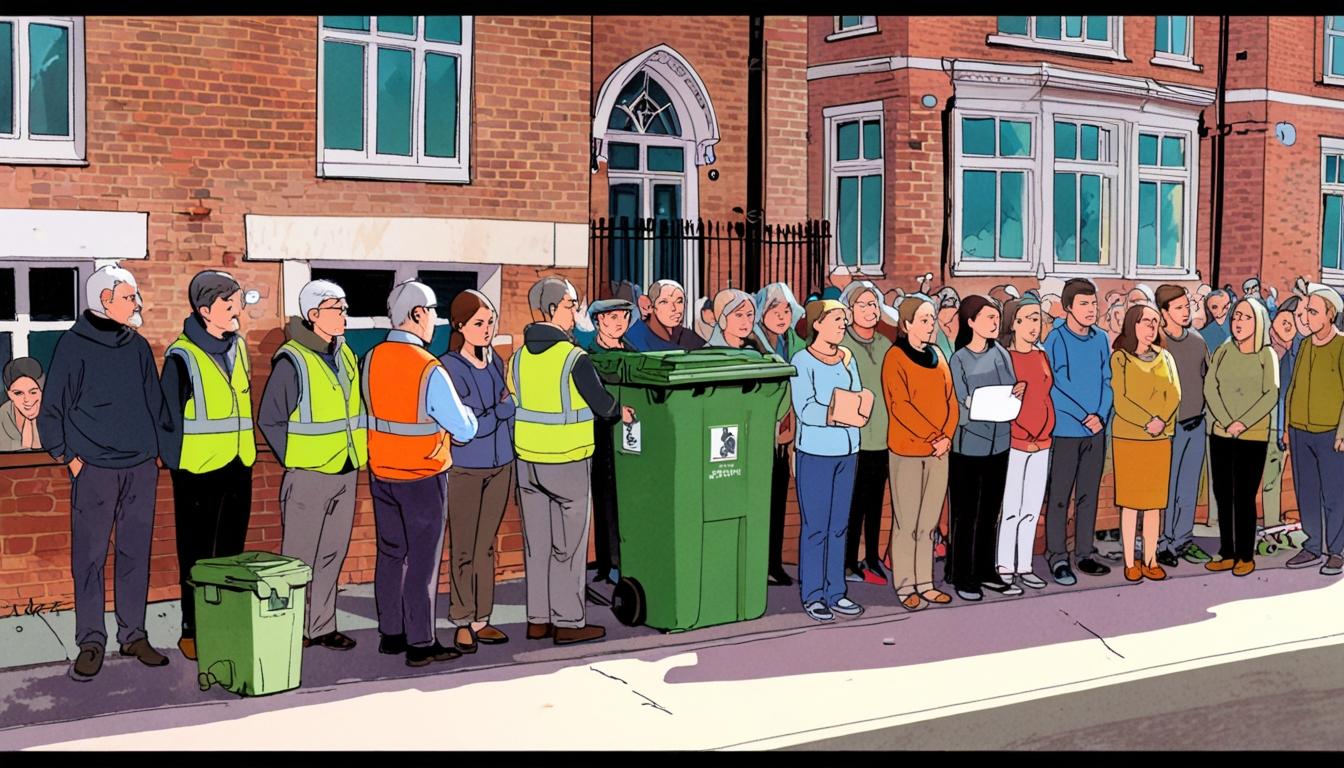Plans to switch to three-weekly bin collections in Newbury, West Berkshire, have elicited significant backlash from residents, raising questions about the council's engagement process and the broader implications for community waste management. The Liberal Democrat-led council, which currently operates a fortnightly collection schedule, aims to implement this change as part of a draft waste strategy projected to save £150,000 annually. However, many locals argue that the consultation process preceding this decision was fundamentally flawed, lacking adequate awareness measures that might have better informed them about the proposed switch.
Niki Marshall, a leading campaigner against the change, highlighted concerns about increased waste accumulation and potential pest problems. Speaking about the community's sentiments, she noted that families with young children, the elderly, and those with specific medical needs are particularly anxious about the implications of less frequent waste collections. This sentiment isn't isolated; a consultation process reportedly yielded over 5,000 responses, predominantly opposing the change.
The council’s assertion that the three-week collection schedule will not only enhance waste management but also improve recycling rates is met with skepticism. Councillor Stuart Gourley acknowledged that approximately 43% of the waste in black bins is recyclable, indicating a need for improved recycling initiatives. Furthermore, he stated the importance of listening to public feedback, emphasising that waste services are among the most visible services provided to residents.
The overarching strategy includes ambitious goals such as increasing recycling rates to 60% by 2030 and reducing carbon emissions, which aligns with broader objectives in sustainable waste management. However, many residents seem unconvinced that reducing the frequency of collections will facilitate those goals. As part of the proposed strategy, the council intends to leverage public insights gathered throughout the consultation process, scheduled to conclude by November 2024. Insights from these discussions will be incorporated into a report due for release in December.
As local councils across the UK grapple with sustainability and waste management, the effectiveness of less frequent collections remains a contentious issue. Past experiences in other regions suggest that such measures may indeed spur higher recycling rates due to the need for residents to be more deliberate in waste segregation. Yet, critics remain cautious, warning that a decrease in service frequency could lead to a notable deterioration in community hygiene and sanitation.
The council’s draft waste strategy is still under review and will be presented for executive consideration in the spring of 2025. Until then, campaigners continue to mobilise residents in an effort to hold the council accountable, advocating for a thorough reassessment of the proposed changes to ensure that the health and wellbeing of the community remain paramount.
In this ongoing debate, the solution may not lie solely in the frequency of waste collections but in fostering a collective commitment to responsible waste management practices and robust community engagement. As Newbury navigates these challenges, the direction taken may well set a precedent for other councils facing similar dilemmas in the future.
Reference Map
- Lead article
- Related summary (2)
- Related summary (3)
- Related summary (4)
- Related summary (5)
- Related summary (6)
- Related summary (7)
Source: Noah Wire Services
